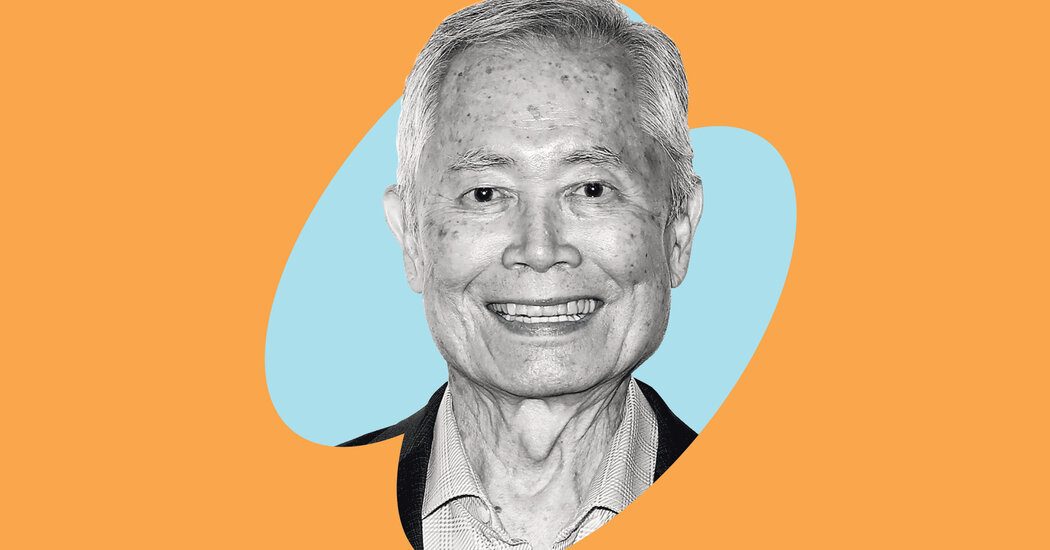Table of Contents
When George Takei talks about his childhood, he speaks of both anguish and beauty.
The actor best known as Sulu from “Star Trek” was only 5 when he and his family — like thousands of Japanese American citizens during World War II — were relocated from their Los Angeles home to a string of incarceration camps.
Takei captured some of his family’s wartime experiences — in a horse stall in Arcadia, Calif., a camp in Rohwer, Ark., another one in Northern California — in his picture book, “My Lost Freedom,” due out April 16. “This is an American story that Americans need to know about,” he said in a video call.
The book continues his mission to shed light on a dark chapter in U.S. history. It follows his 1994 autobiography “To the Stars,” his 2019 graphic memoir “They Called Us Enemy” and the 2015 musical production “Allegiance,” which was inspired by his life.
Takei, 86, discussed meeting dignitaries with his husband, Brad, as well as the keepsakes he treasures and his one healthy addiction. These are edited excerpts from the conversation.
1
Seeing Your Work in Lights
I got a phone call that the marquee for “Allegiance” was going up at 8 a.m. Our apartment was so close to Longacre Theater, in Manhattan, we ran down there to see the letters being put there. It was thrilling — a life landmark experience! I wished both my parents could be there.
2
Big Band
At Rohwer, my father arranged to borrow a record player from the camp administration every couple of months, and after dinner, the tables were dragged away, the benches were put off to the side, and the teenagers got to have a dance. My bedtime music was the music from the mess hall. I still get a lump in my throat when I hear big band music from the 1940s.
3
Mount Fuji
My parents loved sending me to summer school. There was a session in Tokyo at Sophia University. I think I was 17. One of the guys came up with this idea: “They allow people to climb up to the top of Mount Fuji. Would you guys want to do that?” About a dozen of us said, yeah. When you begin, they sell you this staff. At each station they have an old man with a branding iron who’ll mark the staff; that’s proof that you reached the station. I have the whole staff with the final branding.
4
Dining With Presidents
Brad and I are a gay couple, I was raised in American prison camps, and we went to a State Dinner, in the White House, as guests of President Clinton in 1999 to welcome Prime Minister Obuchi to Washington. And I got another invitation from President Obama to greet Prime Minister Abe and his wife in 2015. Obama put us up on the dais, I was seated next to the first lady of Japan, and Brad was seated next to Nancy Pelosi. How about that?
5
Sydney Opera House
A couple of years ago, we were in Australia, and Brad was dealing with jet lag by going to bed. My attitude is, you’ve got to walk around and get the blood coursing, and a sense of the place where you are. I was walking along, and there was this street lamp advertising “The Phantom of the Opera” at Sydney Opera House. So I rushed back to the hotel, woke Brad up and said, “We’re going to go to the theater!” It was a fantastic production.
6
Japanese American National Museum in Los Angeles
It’s one of the premier institutions in America — the place for anyone doing any kind of research on that chapter of American history. I’m a former chairman of the board, I’m still on the board of trustees, and I founded that museum with others.
7
Shellfish in Australia
For “Blood Oath,” we filmed right near Moreton Bay. They have these crustaceans that look like bugs, a midsize crab with a thousand tiny legs. They said this was a unique dish to Queensland. It’s a combination of the consistency of oysters and the flavor of lobster and shrimp. You have to taste it to know what it’s really like. It’s so indescribably good.
8
Olympic Torch
In 1984, the idea was having runners carry the Olympic flame every five kilometers all the way to the Los Angeles Memorial Coliseum. “Star Trek” producer Harve Bennett said, “Well, George, you’re a runner. Paramount would love to sponsor you.” It was the most heady run, and I got to keep the uniform and the torch.
9
Grauman’s Chinese Theater in Los Angeles
When we came out of camp in 1946, the whole world opened up, and the Chinese theater was a glamorous place for me. You’ll find my name, together with my “Star Trek” colleagues, right there on that sidewalk.
10
Green Tea
I carry Ito En Oi Ocha tea bags around. They have lots of antioxidants that help you live long and prosper! I drink it every day, all day. I am an addict.


